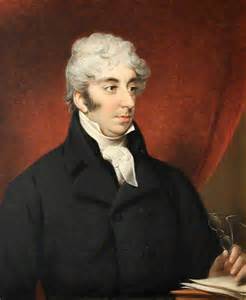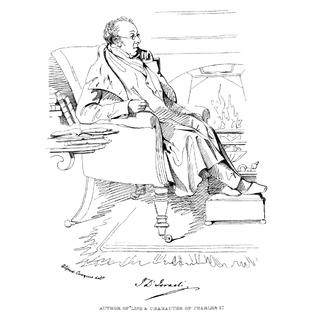
Early Life
Isaac D’Israeli was an English author born in Middlesex, in 1766. He passed on January 19th 1848. He was the sole son of his father Benjamin D’Israeli and was a British Prime Minister, along with a novelist. After finishing his explorations and education, he made his first appearance in print with a vindication of Dr Johnson’s character in the “Gentleman’s Magazine.”
He belonged to the Age of Reason because his mind was shaped by the likes of Voltaire, Spinoza, Goldsmith, and Rousseau. His father was a religious antiquarian, sceptic, bibliophile, scholar, and writer, who went on to publish many literary miscellanea, three novels, two volumes of poetry, and a collection of romances.

Famous Works of Isaac D’Israeli
His first volume was published in 1790, it was called “A Defense of Poetry.” He then gained acquaintance with various literary men.
In 1791, he bombarded the world when he delivered anonymously, a collection of essays in “Curiosities of Literature,” which became an instant hit, and later, gained several sequel volumes, the second in 1793, third in 1817, fourth and fifth in 1823, and sixth and the final one in 1834.
Apart from the sequels, he also engaged in other writings as well, such as “Miscellanies of Literary Recollections” in 1796, “Calamities of Authors” in 1812-13, “Quarrels of Authors” in 1814, “An Essay on the Literary Character” in 1795, and “A Dissertation on Anecdotes” appeared in 1793.
He also tried the romance genre and published a few books, but later burying this aspect. In 1797 three such books were published
“Mejnoun and Leila, the Arabian Petrarch and Laura,” “Vaurien: A Sketch of the Times”; and “Flim-Flams, or the Life of My Uncle”; His final novel, “Despotism, or the Fall of the Jesuits,” appeared in the year 1811.
During the end of the year 1839, D’Israeli contracted paralysis of the optic nerve, rendering him sightless for the remainder of his life. Despite this, he completed “Amenities of Literature” in 1840, and also published a revised edition “Curiosities” in 1841, along with a paper in the “Gentleman’s Magazine,” which was his final work.
Curiosities of Literature by Isaac D’Israeli
In 1791, he bombarded the world when he delivered anonymously, a collection of essays in “Curiosities of Literature,” which became an instant hit, and later, gained several sequel volumes, the second in 1793, third in 1817, fourth and fifth in 1823, and sixth and the final one in 1834.
He wrote the 2nd volume in 1793, the third one was in 1817, two more in 1823, and the sixth and final one in 1834.
This assortment of essays, “Curiosities of Literature”, consisting of characters, anecdotes, observations, sketches, etc. has been called “that library in miniature”. This library has undergone evolution through a strong evolutionary process, consisting of a sea change of selection, omission, addition, and revision.
Having 14 editions, the final one in 1849, a year after D’Israeli’s death, consisting of 276 essays.
The author has collected interesting facts and anecdotes on various literary and historical topics, from multiple realms, and has assembled them in this book. The subjects are diverse and vary from Cicero’s puns to metempsychosis among various others.
This book is a treasure trove of knowledge, it is considered as a hub of information. In short, the work is a library of that about which little is known and is as entertaining as well as instructive.
Quotes
- “The delights of reading impart the vivacity of youth even to old age.”
- “There is an art of reading, as well as an art of thinking, and an art of writing.”
- “The French ambassador to Spain, meeting Cervantes, congratulated him on the great success and reputation gained by his “don Quixote”; whereupon the author whispered in his ear: “had it not been for the inquisition, I should have made my book much more entertaining.”
- “It is a wretched taste to be gratified with mediocrity when the excellent lies before us.”
- “There is an art of reading, as well as an art of thinking, and an art of writing.”
- “Philosophy becomes poetry, and science imagination, in the enthusiasm of genius”